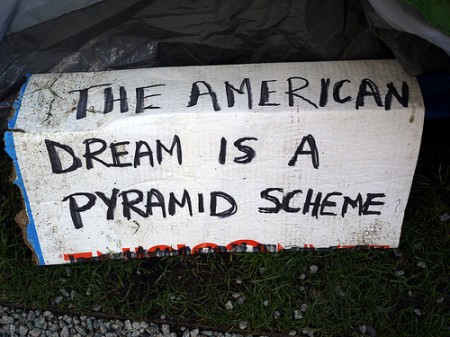|
PIECE #1 For those fortunate enough to be reading this, time offline could be considered as a way to connect with two-thirds of the two-legged consciousness of the planet. Come to think of it, the trees are not online, the birds are not online, the mountains and valleys are not online though many speak for them and you can find their images and sounds on screens large and small. PIECE #2 Not everyone reads words. The Chinese have a picture-language. One of the simplest yet most profound writings ever, the Tao Te Ching, emanates from China. Bear in mind, though, that “After the Communists took over China in 1949, [the companion] I Ching was denounced as a book of feudalism and superstition. It was banished from the market, and reading it was not allowed.”2 Recently, “China surpassed the United States as the world’s largest consumer of foreign oil, importing 6.3 million barrels per day compared to the United States’ 6.24 million.”3 Somewhere beneath China’s massive new concrete roadways and perhaps still on them flow those threads of timeless wisdom.
Boomtime is nice but they might want to look into the not so crystal ball to see what’s happened in Detroit. Whatever it is about the Chinese and Indian cultures that you know or don’t know, at least learning something helps to tune-in to a huge piece of the global consciousness. Not only rubber tires, but the rhythm of human feet daily beat the concrete streets. Yet, Indigenous Peoples are often on the front lines literally protecting the water, etc. that affects everyone. Recent protests to stop fracking in New Brunswick, Canada are a prime hotspot; the Elsipogtog First Nation, a Mi’kmaq Nation, is not only taking action to protect their ways and people, they are protecting the well-being of Mother Earth.
According to Tiokasin Ghosthorse, host of First Voices Indigenous Radio, there are about 350 million Indigenous Peoples living on and caring for 70% of the pristine land that is left on the planet. Now, think about that and you will get some insight as to how important it is that corporate-governmental powers stop abusing Mother Earth and her children. Think about that some more and you will get some insight as to why the status quo would rather you think Indigenous Peoples are a fascinating relic of a bygone era. As will be shown in the following pieces, small numbers can have a large effect. PIECE #4: According to worldwatch.org, ...
Also ...
“The United States, with less than 5% of the global population, uses about a quarter of the world’s fossil fuel resources—burning up nearly 25 % of the coal, 26 % of the oil, and 27 % of the world’s natural gas.”5 “International research shows that United States’ defense funds make up between 40 and 45 percent of the world’s total military spending.”6 And about as much as the next 11 biggest spending countries combined, and more than four times that of China, number two on the list."7 Food, energy, and the military intertwine, with the latter often being used to control the former and then some.
The Occupy Movement highlighted the economic pie’s vast imbalances with such slogans as, “We are the 99% percent.” Yet according to Jason Bellini of the Wall Street Journal, there’s a kind of pyramid scheme within the 1%: “Globally, 0.7 percent of the people control 41 percent of the world’s wealth.” And Americans are “42 percent of the 0.7 percent. . . . Bellini intriguingly asks,
Addressing the pathological sense of entitlement that many of the elite have (not all of the elite are nutzo), William Manson, in his article, ”The Politics of Sociopathic Narcissism,” writes:
“Writing on “Personality Disorders” for The Harvard Guide to Psychiatry, eminent psychoanalyst John G. Gunderson noted that the narcissistic syndrome “overlaps considerably with the interpersonal style of anti-social personality—so much so that narcissistic individuals are sometimes considered ‘white-collar’ psychopaths . . . Extrapolating from Gunderson’s observation, I am therefore suggesting that ‘sociopathic narcissism’ is a characteristically political syndrome, disproportionately manifested in successful U.S. politicians—and most egregiously, in recent presidents.”9 Since politics is basically ruled by the corporate-banking state, it is not unfair to suggest that global wealth imbalances are essentially due to the sociopathic-narcissism of a small minority of distorted personas on the world stage. “Gregg Braden, in The Isaiah Effect, claims that early sages and prophets suggested that one tenth of one percent of humanity could shift the consciousness of the world.”10 Transcendental Meditation calls a similar phenomenon, the Maharishi effect:
"The name was given to the founder of Transcendental Meditation, Maharishi Mahesh Yogi. Maharishi predicted that if 1% of the population of a community practiced TM it would create a field of consciousness to improve the quality of life . . . With the introduction of a more advanced technique called the TM-Siddhi Yoga Program this had a more powerful effect whereby the square root of 1% of a population practicing these two techniques could ‘neutralize negative tendencies and promote positive trends throughout the whole population.’ . . . According to the ratio given by TM for how many people in a population can effect a change, with the world having now reached 7 billion people, one percent of the world's population would be 70 million people, and the square root of 1% would be 8,367.”11 The proof is in the pudding but the idea that 8,367 human beings can have a powerfully positive effect on the world gives new meaning to such clichés as, “Every little bit helps.”
Yet the numbers are, uh, larger from another article13:
PIECE #8 A recent “Popular Resistance Newsletter - Finding Our Way To Empathy, Passion And Resistance” has a stat reflecting the changing tide from capitalism to something more genuinely egalitarian:
“The Brookings Institution, a mainstay of Washington, DC think tanks, found that 42% of Americans do not think capitalism is working for the United States. Only 9% believe capitalism is working very well.”14 Even though a tremendous number of people may support something, because of the sociopathic tendencies of the corporate-state minority actual change can take a lot of work. The food industry is a case in point:
“Knowing full well that 93 percent of the American public supports GMO labeling, and that if one state passes it, many others are likely to follow, entrenched agribusiness interests are pulling out all the stops to try to squelch yet another state labeling effort.”15 Seymour Hersh’s idea of how to fix journalism:
COFFEE:
I’m no political statistician but many times have noticed how elections go and often it is 51% percent victories over 49% losses. In the recent Venezuelan presidential election, Nicolás Maduro got 50.6% and Henrique Capriles Radonski, 49.1% Oftentimes in the political arena, much hangs in the balance on a thin thread. While such elections can have a major impact on the rest of world – in this case Venezuela being a focal point for much of the geo-political dis-engaging from the USEmpire’s hegemony (with its 1000? military bases) – in other parts of the world it is the political system itself that gets in the way. As Russell Brand recently wrote,
“As far as I’m concerned there is nothing to vote for. I feel it is a far more potent political act to completely renounce the current paradigm than to participate in even the most trivial and tokenistic manner, by obediently X-ing a little box.”18 Considering the global grasping for resources, one of the most powerful ‘voting’ tools is the wallet. The entire corporate-commerce system is based on end-result sales; if those sales can be changed – whether through boycott, consumer pressuring of companies, or simply buying stuff somewhere else – that’s one way that the “ruthless efficiency” (to quote Monty Python) of the system can be undermined. So the next time you get some coffee and a piece of pie, it might interest you to know where it comes from and how it was produced. A TIP FOR THE READER:
so much depends a red wheel glazed with rain beside the white Mankh (Walter E. Harris III) is an essayist and resident poet on Axis of Logic. In addition to his work as a writer, he is a small press publisher and Turtle Islander. A new book, “On Behalf of Those Who Speak Different Languages,” is in the works. He also hosts an audio show "Between the Lines: listening to literature online." You can contact him via his literary website. READ MORE POETRY AND ESSAYS BY MANKH ON AXIS OF LOGIC
Notes
|



